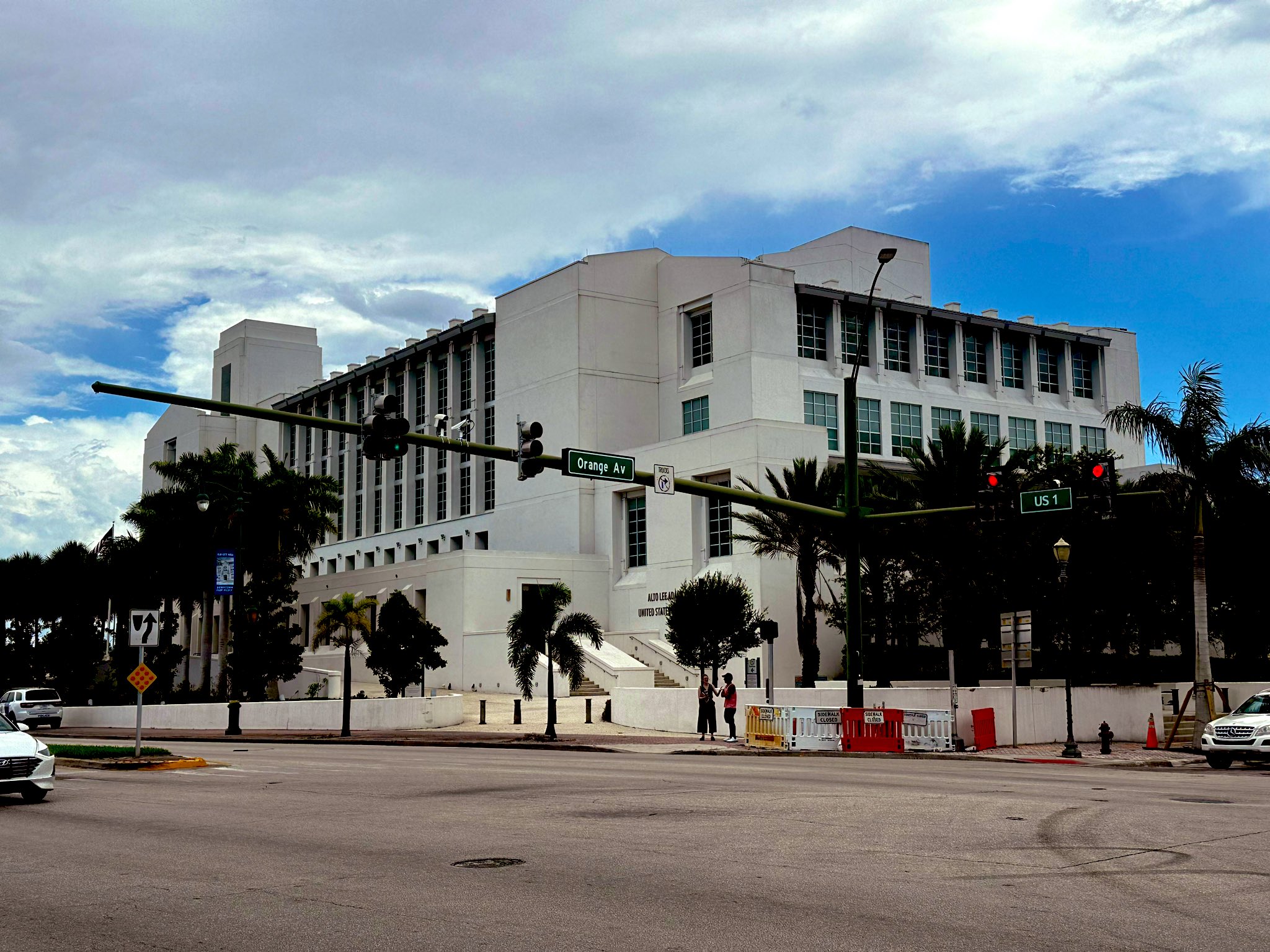Today's Headlines and Commentary
ISIS’s spokesman, Abu Mohammed al Adnani, has been killed in Syria, the New York Times reports.
Published by The Lawfare Institute
in Cooperation With

ISIS’s spokesman, Abu Mohammed al Adnani, has been killed in Syria, the New York Times reports. Adnani was one of the terrorist organization’s founding members and served not only as its spokesman, but also as its head of external operations, planning and directing attacks abroad. His death is a major blow to the Islamic State. The ISIS media outlet Amaq reported his death, but details remain scarce.
Secretary of Defense Ash Carter called on Turkey and Kurdish forces in northern Syria to stay focused on fighting the Islamic State and not to target each other. Carter’s request came after Turkey claimed it had killed 25 “terrorists” in strikes on Kurdish positions on Sunday. But Ankara said it would continue targeting the Kurdish People’s Protection Unit (YPG) if the group failed to retreat east of the Euphrates River. The US-led coalition has been backing the YPG with training and equipment to fight ISIS. Al Jazeera has more.
The Associated Press reports on Turkey’s dismissive reaction to Carter’s public remarks. Omer Celik, a Turkish cabinet member, said, “No one has the right to tell Turkey to ‘fight this terror organization but don’t fight that terror organization.” Other Turkish officials urged the U.S. to focus its clout and resources on persuading the Kurds to comply with Ankara’s demands. The Hill tells us that the Pentagon has warned that only the Islamic State will benefit if the two U.S. allies continue their clashes.
As the diplomatic war of words intensifies, Turkish-backed Syrian rebels have pushed deeper towards Kurdish-held territory in northern Syria. The rebels said they had crossed the al-Sajour River, about nine miles north of the town of Manbij, which is controlled by Kurdish fighters. Turkey has assisted its rebel allies through a combination of air support, tanks, and special forces. The Post reveals that Turkey is concerned that any political successes by Syria’s Kurdish population could trigger calls for self-determination among Turkish Kurds.
The Wall Street Journal reports that Turkey’s military push into Syria last week—which was cited at the time by the Pentagon as evidence of a strong U.S.-Turkish partnership—was actually a unilateral decision that came after the White House proved reluctant to commit to a proposed joint ground operation between U.S. special forces and their Turkish counterparts. Turkey did not give U.S. policymakers advance warning before making its biggest move yet in the Syrian civil war. Reuters has more.
The New York Times takes a step back to consider how Turkey’s renewed engagement in Syria will likely prolong the civil war and prevent the country’s disparate rebel factions from unifying against the Islamic State and the Syrian government. Brett McGurk, the U.S. special envoy against the Islamic State, said the United States finds any clashes not targeting the terrorist organization “unacceptable and a deep source of concern.”
The Daily Beast analyzes recently leaked Islamic State documents to reveal how the terrorist organization is under considerable strain from financial misappropriation, embezzlement, alleged infiltration by anti-ISIS spies, and bureaucratic infighting. According to these documents and interviews with Islamic State defectors, ISIS attempts to regulate everything from the requisition of weapons and ammunition to the allowance of vacation time.
The Associated Press flags a recent report from Human Rights Watch that claimed Iraqi militias are recruiting children from camps for civilians displaced by conflict ahead of the long-awaited operation to retake the Islamic State stronghold of Mosul. The children are being deployed as recruits to augment the militias’ frontline positions against the Islamic State group in the province of Nineveh, where Mosul is located. The Islamic State routinely uses children as suicide bombers, and HRW warns that unless the Iraqi government and its foreign partners intervene, children will be fighting on both sides of the battle for Mosul.
The Taliban have appointed a new military chief as the insurgents try to gain more ground rather than broker a peace deal under new leadership. In interviews with the Associated Press, Taliban officials said the appointment of Mullah Ibrahim Sadar, once a close ally of Mullah Mohammed Omar, heralds a commitment to confrontation at a time when multiple governments are trying to coax the Taliban to the negotiating table. Sadar’s appointment follows a number of significant Taliban in recent weeks against an Afghan government bogged down by accusations of corruption and factional in-fighting.
U.N. Humanitarian Coordinator Jamie McGoldrick told reporters in Sanaa that at least 10,000 people have been killed in Yemen’s 18-month-old civil war—a toll nearly double the estimates most officials and aid workers have previously cited. McGoldrick said the new number is based on official information from medical facilities in Yemen. Peace talks between the Iranian-backed Houthi rebels and the Saudi-backed Yemeni government broke down earlier this month and the conflict has accordingly intensified. Reuters has more.
The State Department said that it is concerned about Iranian state media reports that the country has deployed an advanced missile defense system around its Fordow underground uranium facility. Russia sold Iran the surface-to-air defense system over U.S. objections. State Department spokesman John Kirby clarified that Secretary of State John Kerry had not raised the issue with his Russian counterpart Sergey Lavrov over the course of US-Russia talks regarding Syria last week.
Josh Rogin reported in the Washington Post that some U.S. experts who participated in Track II conversations with top North Korean officials believe Pyongyang is ready to restart talks about its nuclear program. Any breakthrough on this front would come as a surprise to conventional wisdom, as North Korea has drastically increased the pace of its nuclear and ballistic missile tests since Kim Jong Un came to power. Last week, the Hermit Kingdom celebrated a successful submarine missile launch that provoked near-unanimous criticism across the region, including from both Beijing and Moscow.
The Associated Press fills us in on North Korea’s latest denouncement of the U.N. Security Council. Pyongyang called the Security Council’s decision to condemn its four latest ballistic missile launches a “hostile act” perpetrated by the United States. The diplomatically isolated country warned that this move could trigger the United States’ “self-destruction.”
Nicolay Mladenov, the United Nations’ special envoy to the Middle East, told the U.N. Security Council that both Israel and Palestine’s leaders continue to shy away from the steps needed for peace. Mladenov cited the Palestinian Authority’s inability to control Gaza and continued illegal settlement expansion by Israelis as the two largest barriers to peace. He urged both sides to consider implementing the recommendations laid out in a July report by the Quartet of Mideast peace negotiators, which comprised of the United Nations, the United States, the European Union, and Russia.
The White House announced on Monday that President Barack Obama will meet Turkish President Recep Tayyip Erdogan next week for the first time since the botched coup attempt last month. Ankara’s relationship with Washington has been strained by the United States’ refusal to extradite Fethullah Gülen, a Pennsylvania-based cleric who has been accused of orchestrating the failed coup. Obama will also spend several hours in a session with Chinese President Xi Jinping reviewing U.S-Sino relations. Both meetings are slated to take place on the sidelines of a G20 summit hosted by Beijing.
Reuters reports that a suspected suicide car bomber rammed the gates of the Chinese embassy in the Kyrgyz capital Bishkek on Tuesday, killing the attacker and wounding at least three other people. Both Kyrgyz and Chinese officials labeled the incident a terrorist attack. No group has taken responsibility for the attack, but immediate suspicions were directed towards Uighur militant groups that have expressed anti-Chinese sentiment and are active in Central Asia.
Uzbekistan may soon confront its first ever leadership crisis, as conflicting reports indicate that the country’s aging authoritarian leader may be dead. Politico writes that, according to official reports, President Islam Karimov has been hospitalized following a stroke. Under Karimov’s rule, Uzbekistan has become notorious for its political repression and human rights violations.
The Venezuelan government is accusing the United States and the country’s political opposition of planning a coup for this Thursday, the day that government opponents have called for a march to demand a recall vote against President Nicolas Maduro. The State Department most recently sparked Venezuela’s ire by calling for the release of the jailed former mayor of San Cristobal, Daniel Ceballos, who was seized by Venezuelan intelligence agents over the weekend and whom U.S. authorities and human rights groups consider a political prisoner. The Associated Press has more.
Philippine Foreign Minister Perfecto Yasay warned that China will be the "loser" if it does not recognise The Hague’s tribunal ruling against its territorial claims in the South China Sea. The international court ruled that Beijing had violated Manila’s territorial sovereignty and had no historical or legal basis over the South China Sea. But China has so far ignored the ruling, and its ongoing activity in the disputed waters has alarmed policymakers in Washington and across the region.
ICYMI: Yesterday, on Lawfare
Stephanie Leutert tracked the latest homicide numbers from Mexico and the grim story they tell.
Paul Rosenzweig flagged a recent New York Times story on Russia’s disinformation campaigns and warned readers that our enhanced cyber connectivity will only amplify such a campaign’s appeal.
Paul also considered the possible dangers when state and local governments leak confidential cyber information that the federal government has shared with them.
Darren Tromblay published an essay documenting the widespread occurrence of “asymmetric warfare” and its repeated use by the United States’ adversaries.
David Wirth confirmed that the Paris Agreement on Climate Change was an entirely legitimate exercise of the executive branch’s agreement power.
Email the Roundup Team noteworthy law and security-related articles to include, and follow us on Twitter and Facebook for additional commentary on these issues. Sign up to receive Lawfare in your inbox. Visit our Events Calendar to learn about upcoming national security events, and check out relevant job openings on our Job Board.





